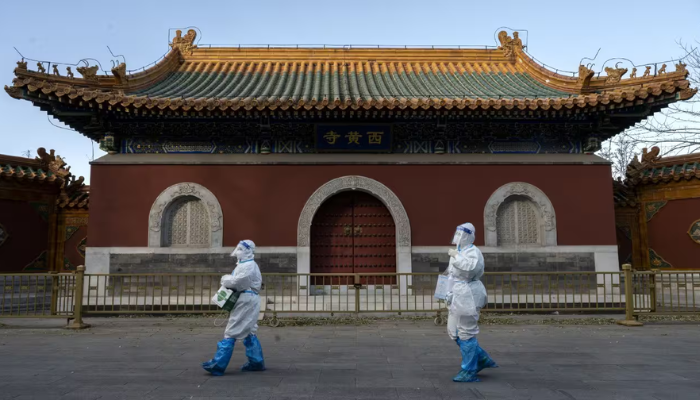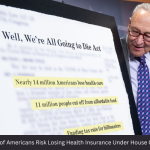Just when many were certain that the pandemic was firmly in the rearview mirror, NEW COVID has made a rather unexpected comeback across parts of Asia. Hong Kong, Singapore, Thailand, and China are all reporting surges in infections and are thus renewed concerns for health and safety.What is behind this new wave, really? And should we be worried?

Highest Infection Rates in Hong Kong in Over a Year
Hazards have therefore been raised by the Hong Kong health authorities as positivity rates have reached their highest point in over 12 months. According to Albert Au of the Centre for Health Protection, severe cases are increasing, with hospitalizations of 31 reported in the single week-the highest of the year.
Even sewage testing is indicating increased viral loads, so this confirms that spread in the community is faster. The outbreak has become high-profile enough for famous singer Eason Chan to have to cancel concerts in Taiwan after testing positive, drawing attention to the resurgence of the virus.
Singapore Records a 28% Rise in Cases—What’s Up?
The Ministry of Health of Singapore provided an alarming update—cases increased by 28% in early May with an estimated 14,200 new infections in one single week. Hospitals then witnessed a 30% rise in admissions, following which officials reinstated regular reporting, something that had not been practiced for almost a year.
The number of cases is suddenly rising-but why?
- Loss of Immunity: It has mostly been months since most people received a booster shot, so they are more vulnerable.
- Seasonal Factors: While respiratory viruses usually decline in warmer months, New COVID-19 continues to circulate unpredictably.
- No New Dangerous Variants (Yet): Health experts confirm that current strains aren’t more severe, but they’re spreading faster due to lower immunity.
Thailand and China Are Also Battling New Outbreaks

Surges are not confined to Hong Kong and Singapore.
- There is a steady rise in cases in Thailand, where hospitals are also reporting more admissions.
- China is mired in localized outbreaks, with some regions even canceling new mask advisories.
In these countries, health authorities are calling on those at higher risk (such as the elderly and immunocompromised) to have booster shots to guard against severe illness.
READ MORE-Turkey Earthquakes: The 2025 Tremor and the Country’s Seismic Future
Is There Any Need for Concern?
Despite rising numbers, there is no need to panic, for the following reasons:
✔ No Deadlier Variants: We don’t see any strains currently (JN.1 and KP.2, for instance) that cause more severe disease.
✔ Vaccines Still Work: Boosters still provide protection against hospitalization.
✔ Less Disruption: Lockdowns are not being considered by most countries unlike during 2020-2022.
Well, if you do plan to travel to any Asian country or interact closely with high-risk individuals, then:
- Consider getting your booster if you have been over 6 months since your last dose.
- Wear masks in indoor crowded places if the cases are high in your area.
- If you are sick, stay at home so as not to spread the infection.
The Bottom Line
New COVID-19 has not gone away; instead, it has become a recurring seasonal threat, much like influenza. The gravity of authority for the present wave is nowhere close to that of previous ones and is only there to remind us that the pandemic is not truly “over.” Keep yourself informed and take simple steps to keep yourself and others safe.
What do you think? Are you already worried about this new wave? Share your thoughts in the comments!
Frequently Asked Questions
1. Why are cases rising again?
Factors contributing to the surge are:
>Waning immunity, as many people have not had a recent vaccine
booster.
>New subvariants KP.2 and KP.3 are easier to spread.
>Seasonal pattern: unlike the flu, COVID-19 does not always strictly observe seasonal trends.
2. Do the new variants cause more harm?
Up to this moment, the new variants, while causing infection, have not been causing the more severe illness. This is confirmed by health authorities of Singapore, Hong Kong, and Thailand. In fact, if anything, the new variants could be the fastest spreaders because of immune evasion.
3. Should I get another booster shot?
If you are considered high-risk (elderly, immunocompromised, or suffering from chronic medical conditions), health departments advise you to stay current on your boosters. For healthy adults, reference local guidelines, as some countries recommend one every six to 12 months.
4. Are masks being mandated again?
Most countries haven’t gone back to enforcing mask mandates, but a few-speaking China and Thailand-would be recommending masks in crowded or opened medical settings.
5. Is traveling to these places still safe?
Yes, but take precautions:
Check travel advisories for your destination.
Consider masking in crowded airports or public transport.
If you’re high-risk, consult a doctor before traveling.











